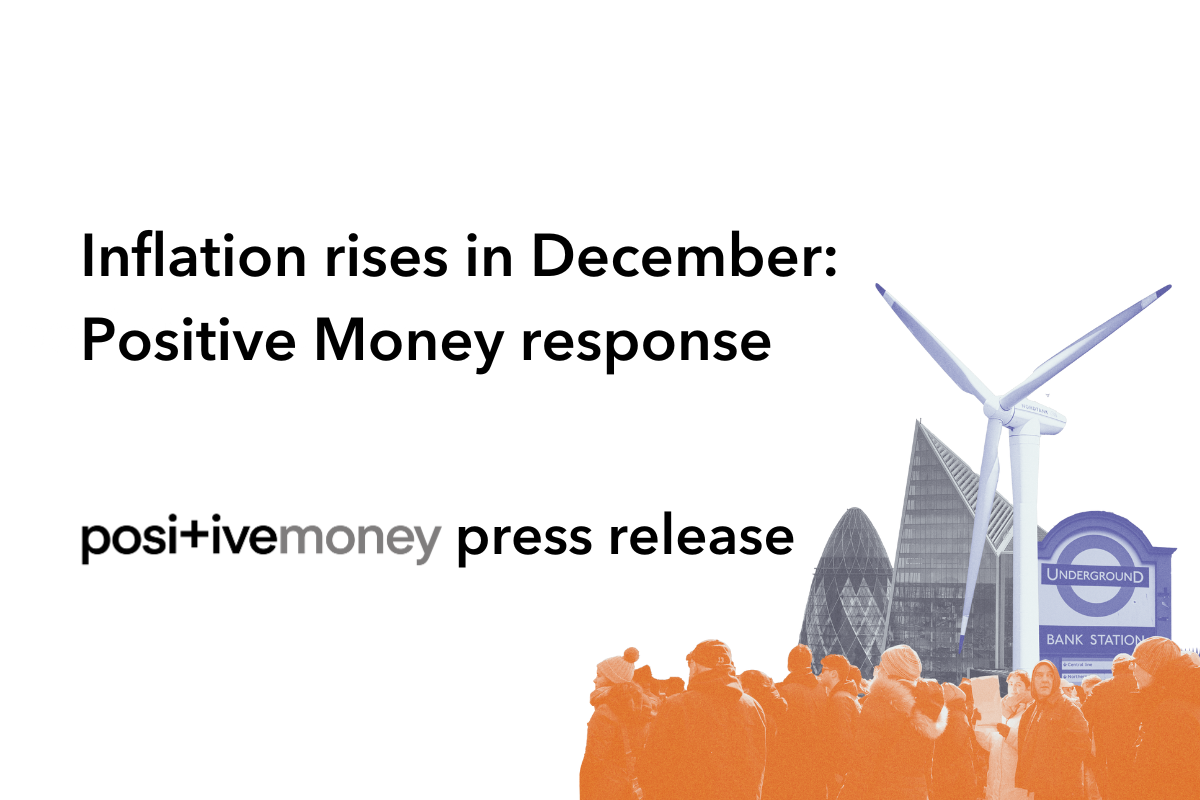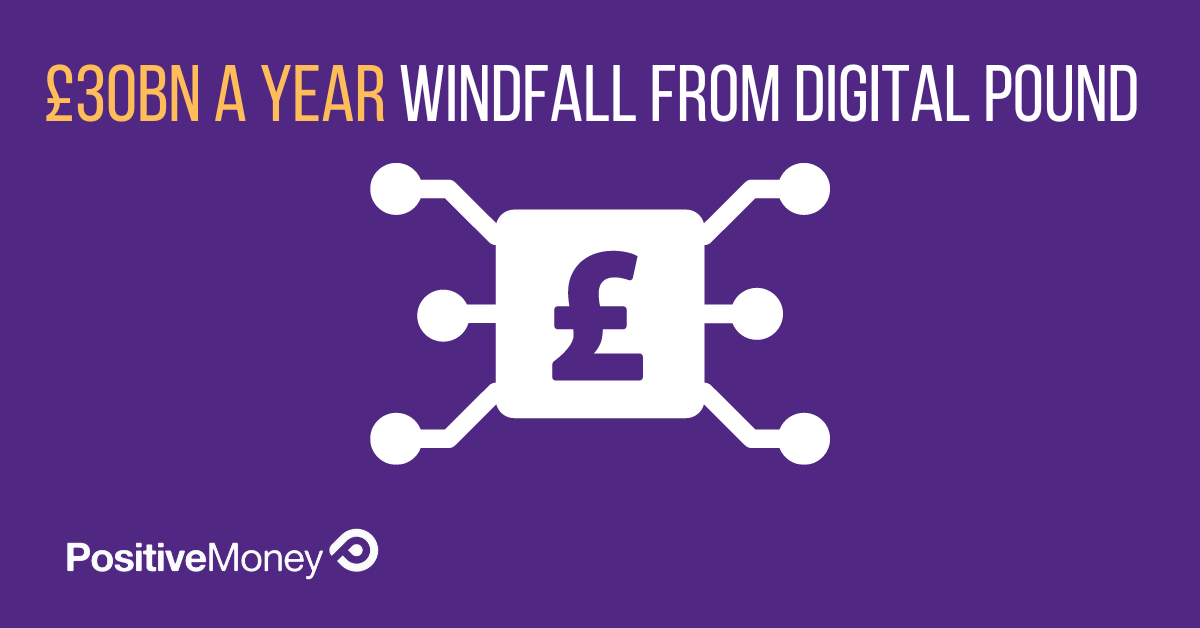
Monetary policy and inequalityUK
21 January 2026
Tens of billions could arise from the ‘seigniorage’ benefits of a digital pound
London, 29 April 2024 – The government could see its fiscal space increased by £30bn a year by the end of the decade if it goes ahead with plans for a digital pound, according to new analysis from research and campaign group Positive Money.
As a new publicly-issued form of money, a digital pound would allow the public to recapture ‘seigniorage’ – the profits from issuing money. Like with banknotes, the publicly-owned Bank of England would generate seigniorage revenue from issuing a non-interest bearing digital pound in exchange for interest-bearing assets, with profits transferred to the Treasury.
The Bank of England previously raised billions of pounds a year for the public finances from issuing banknotes, but these profits have been increasingly surrendered to commercial banks as privately-issued bank deposits, which now make up around 97% of money in the economy, replace physical cash for payments.
With the introduction of a digital pound expected by the end of the decade, Positive Money calculates that by 2029 the government could be set to gain between around £15bn a year in lower adoption scenarios, where 20% of bank deposits are switched to a digital pound, and upwards of £30bn a year in higher adoption scenarios, where 30% of deposits are switched to a digital pound. Revenue from a digital pound could therefore be expected to cover most, if not all, of the £28bn green prosperity plan recently abandoned by the Labour Party.
Positive Money recommends that the government maximises the benefits of a digital pound for the public finances by adopting it for its own spending and cash management. They also propose that digital pound revenue could be recycled into a national development bank, which could channel funds towards the long-term development of the British economy and a just green transition.
As well as these fiscal benefits, a digital pound is deemed necessary by Positive Money to maintain the stability of the monetary system, a point made earlier this month by the Bank of England’s deputy governor for financial stability Sarah Breeden.
Simon Youel, author of the research and head of policy and advocacy at Positive Money, said:
“While politicians often claim there is ‘no money’ for increased public spending, the government looks set to receive a significant windfall from the introduction of a digital pound in the coming years, which doesn’t seem to have yet factored into debates over ‘fiscal headroom’.
“The government would have to decide how this money is used. Though gains from a digital pound could be simply used to cut taxes or increase day-to-day spending, the most impact could perhaps be achieved by investing funds in the UK’s long-term economic development through a national development bank, which could channel finance towards a just green transition.”
Notes
The paper, ‘The Fiscal Benefits of a Digital Pound’, can be found here: https://positivemoney.org/publications/fiscal-benefits-digital-pound/
